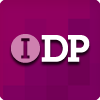Legal Challenges for Online Digital Libraries
Article Sidebar

Main Article Content
Libraries have traditionally played a central role in collecting and organizing material and giving wide access to culture and knowledge. Does the existing copyright framework provide enough space for online digital libraries to claim an equivalent central role in the online space? This article explores the legal challenges for online digital libraries’ collection building. The materials that comprise the content of a library fall broadly under three categories with respect to their copyright status: copyrighted works, works with ambivalent copyright status (such as orphan and out-of-print works) and public domain works. In the paper, I try to answer a number of legal questions related to these three categories of works, inter alia licensing and e-lending as well as digital exhaustion, and also defend the value of creating and sustaining robust digital libraries online. The paper will conclude on how the theory of the commons can improve the existing legal framework and strengthen the libraries’ position in order to sustain valuable knowledge commons supporting the ever-growing network ecosystem. Thus, I emphasize the value of maintaining a growing public domain that can be organized and digitally accessible online.
Article Details
Copyright
Contents published in IDP are subject to a Creative Commons Attribution-No Derivative Works 3.0 Spain licence, the full text of which can be consulted on http://creativecommons.org/licenses/by-nd/3.0/es/deed.en.
Thus, they may be copied, distributed and broadcast provided that the author and IDP are cited, as shown in the recommended citation that accompanies each article. Derivative works are not permitted.
Authors are responsible for obtaining the necessary permission to use copyrighted images.
Assignment of intellectual property rights
The author non exclusively transfers the rights to use (reproduce, distribute, publicly broadcast or transform) and market the work, in full or part, to the journal’s editors in all present and future formats and modalities, in all languages, for the lifetime of the work and worldwide.
The author must declare that he is the original author of the work. The editors shall thus not be held responsible for any obligation or legal action that may derive from the work submitted in terms of violation of third parties’ rights, whether intellectual property, trade secret or any other right.